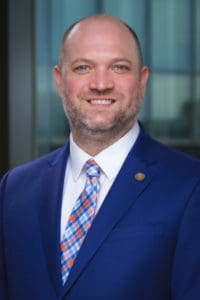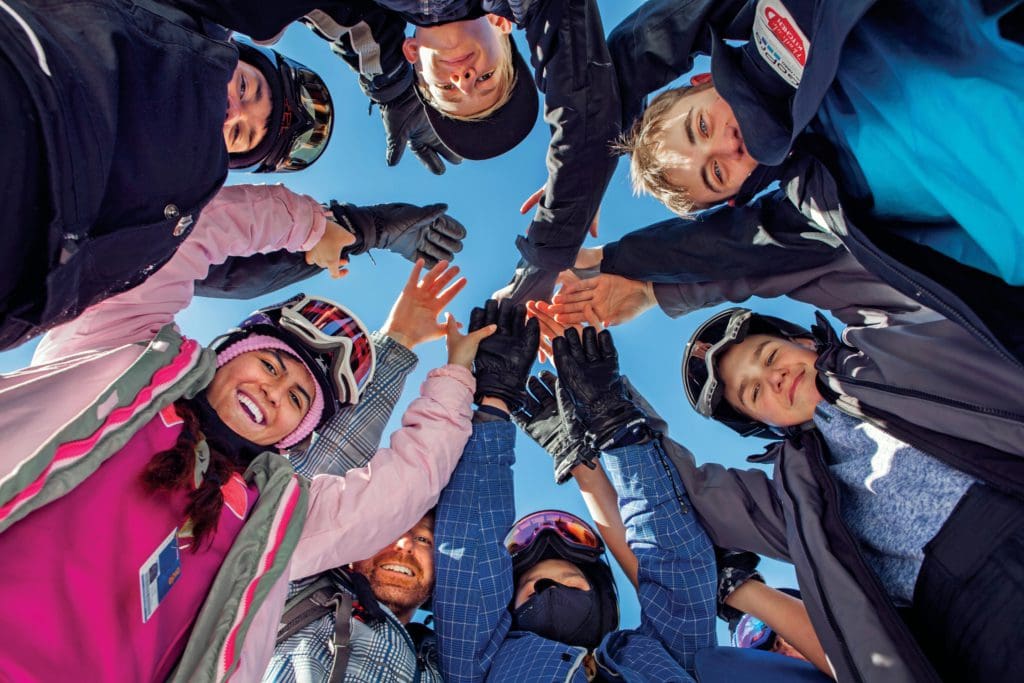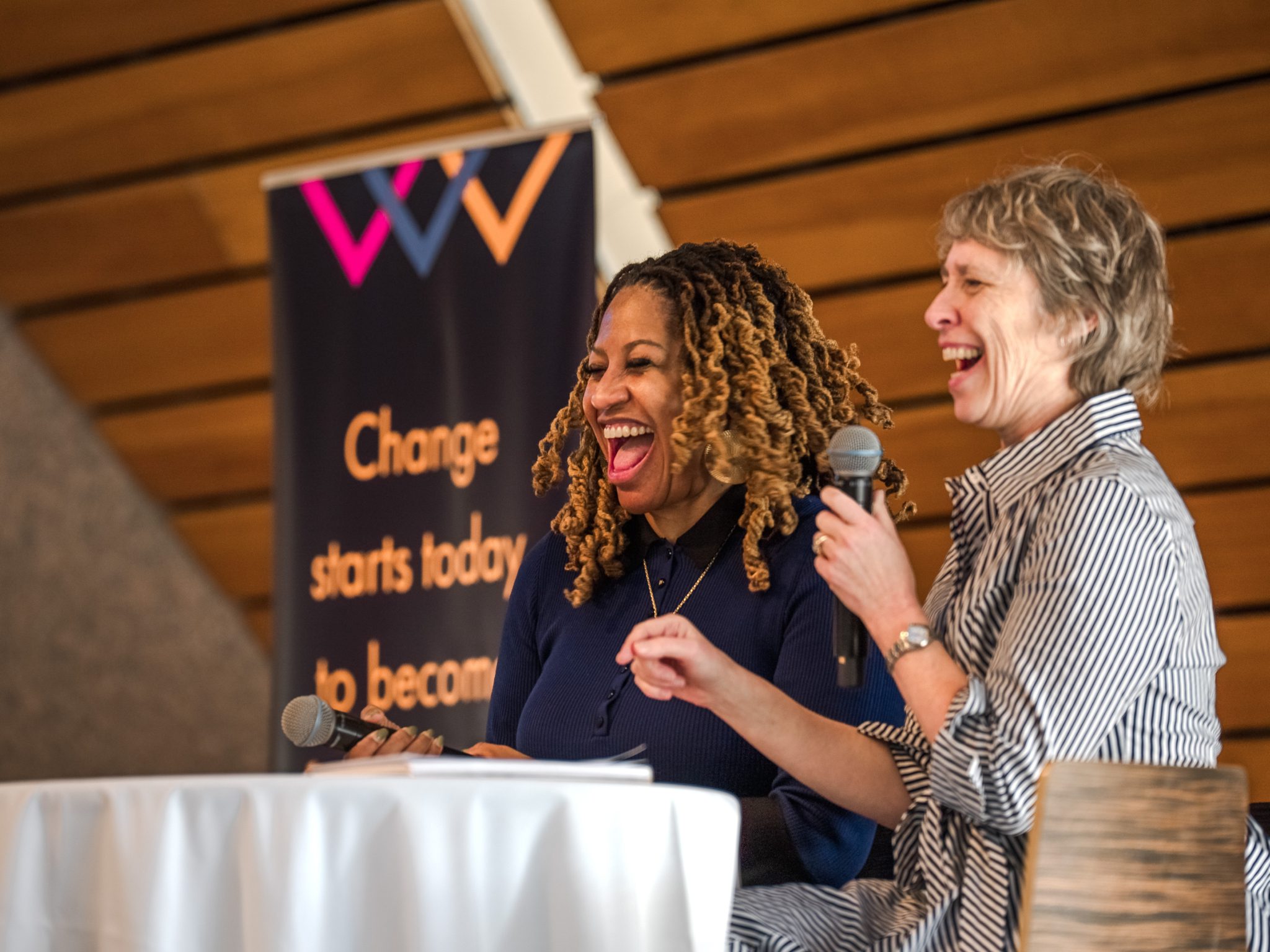The William G. McGowan Charitable Fund, headquartered in Chicago, brings to life William McGowan’s tradition of compassionate philanthropy and ethical leadership. Founded in 1993, the new Independent Sector members works to address the causes and impact of poverty in five regions across the United States. Executive Director Brian Peckrill explains their focus on building sustainable lives and fostering ethical leadership.

Executive Director Brian Peckrill
Q: What motivated your career in the nonprofit sector? What event inspired you to be a changemaker?
BP: I trace my journey in social impact work back 2011, when I was living in Northern Japan, about 300 miles from the Great East Japan Earthquake epicenter. The earthquake profoundly impacted the nation and its people. Our city was fortunately spared from the disaster, and I watched as the community rallied together to assist in any way possible. The community hosted displaced students and families, providing homes and schools. They mobilized to organize fundraisers and clothing drives, and conserved energy as the nation grappled with the politics of sourcing energy.
Though our city’s individual efforts were modest, they were part of a national and global wave of grassroots initiatives that collectively made a substantial impact. This experience was a powerful testament to the effectiveness of the collective action of social impact, and deeply shaped my desire to work in the nonprofit and philanthropic sector.
Tell us about the people and community your organization serves.
The William G. McGowan Charitable Fund is a place-based philanthropic family foundation working in five communities across the United States: Chicago, IL; Northeastern Pennsylvania; Greater, Rochester, NY; Denver, CO and Eagle County; and Greater Kansas City, KS and MO. Our organization’s goal is to impact lives today, create sustainable change, and empower future generations to achieve their greatest potential. By partnering with organizations in the education, health care, and human services spaces that share our vision, we aim to end cycles of poverty and suffering, and foster a healthier, more equitable society. All of the work we do — from our Fellows Program to our grantmaking to our Ethical Leader of the Year Award — is centered on this objective.
How does your organization’s work help to advance a healthy, trusted, and equitable nation?
Core to the work of the McGowan Fund is promoting ethics and ethical leadership. Our McGowan Fellows Program teaches values-based leadership to promising second-year MBA students. This program equips future business leaders with the ethical framework and leadership skills needed to navigate complex challenges and drive positive social change. With over 140 alumni, the program has created a network of professionals who are committed to ethical leadership and making significant contributions to their fields.
 Additionally, our Ethical Leader of the Year Award recognizes individuals who exemplify ethical leadership and have made substantial contributions to business and society. This award not only honors their achievements, but also promotes the importance of integrity and responsibility in leadership. By highlighting and celebrating ethical leaders, we inspire others to follow in their footsteps, fostering a culture of trust and equity.
Additionally, our Ethical Leader of the Year Award recognizes individuals who exemplify ethical leadership and have made substantial contributions to business and society. This award not only honors their achievements, but also promotes the importance of integrity and responsibility in leadership. By highlighting and celebrating ethical leaders, we inspire others to follow in their footsteps, fostering a culture of trust and equity.
In 2022 and 2023, we presented the award to Charles Lowrey, Chairman and CEO of Prudential Financial, and Ed Bastian, CEO of Delta Air Lines. This year, we presented the award to Marvin Ellison, Chairman and CEO of Lowe’s.
I also think it’s important to note that we’re a diverse funder. The organizations we’re funding range from youth development through skiing, to adult literacy programs, to domestic violence shelters, to workforce development, to food banks with neighborhood gardens, and so much more. We’re looking for organizations who are really making a difference — organizations that have the track record and can back up their work with data and stats. These nonprofits can truly show how they’re changing their communities, and some of them are really making large-scale impacts. In one case, we’ve been able to watch the percentage of children (in that particular community) who are kindergarten-ready grow significantly each year.
The hope is that all of these pieces combined can get us to a healthy, trusted, and equitable nation. We’re coming at that goal from multiple angles.
Describe a moment that affirmed your organization is making a difference?
One of our Fellows, Sahar Jamal, class of 2018, shared with us a pivotal memory from her time in the program. A few years ago, our Fellows class was out in Chicago during their winter retreat, on what wound up being the coldest night of the year, learning about the housing crisis directly from unhoused people while collecting data. Much of what she learned that night — that staying homeless is often a choice, a moment of agency, a choice for safety — was really enlightening for her because, like so many, she’d assumed that the people she spoke with were unhoused because the system is bogged down, or it was very difficult to find a shelter.
She learned directly why people were not accessing support and understood that the key to helping people is all in the listening and learning — getting the perspective right from the beneficiary. Jamal now runs Maziwa, a Kenya-based nonprofit focused on breastfeeding support, and created the Wema breast pump. She has taken that lesson of listening, as well as others — like empathy and principle-based leadership — from her time as a Fellow to make great change on multiple continents. Her work and dedication to ethics and the social impact space is something we’re proud to have been a small part of.
What would you like people to know about your organization that might surprise them?
People might be surprised to know that our founder, Bill McGowan, was a visionary leader who transformed the telecommunications industry by taking on, and breaking up, AT&T and Ma Bell. His legacy of innovation and ethical leadership continues to inspire our work today. Additionally, our McGowan Fellows Program, which teaches values-based leadership to promising MBA students, has created a network of over 140 alumni who are making significant contributions to business and society.
How has your work changed in the wake of COVID-19, economic uncertainty, climate change, and the fight for racial justice?
The challenges of recent years have reinforced the importance of adaptability and resilience in our work. In response to COVID-19, we increased our support for organizations addressing urgent needs such as healthcare, shelter, and food security. Economic uncertainty has highlighted the need for sustainable programs that provide long-term solutions. 
What influenced your decision to become an Independent Sector member? How can collaborating with the Independent Sector community help you better achieve your mission?
Our decision to join Independent Sector was driven by the desire to connect with a network of leaders who share our commitment to building a healthy, trusted, and equitable nation through ethics. We also view this as an opportunity to advance our own focus on ethics through deeper conversations about what is ethical for the governance of not-for-profits. All across institutions of America, there’s a downward trend in trust. You see it in government, business, not-for-profit, and media. We feel that it’s really important that people trust nonprofits because we can’t really achieve our impact of uplifting individuals from poverty without them. If we don’t trust each other, and if we don’t put trust in these systems, the systems fail and break.
It’s important that the McGowan Fund is an institution that promotes trust and a system that works, so we can get closer to our end goal. If people don’t believe in these organizations, we lose an opportunity to deliver real aid.
Learn about other Independent Sector members and becoming a member.
Lindsay Marcal is Manager, Membership at Independent Sector.


